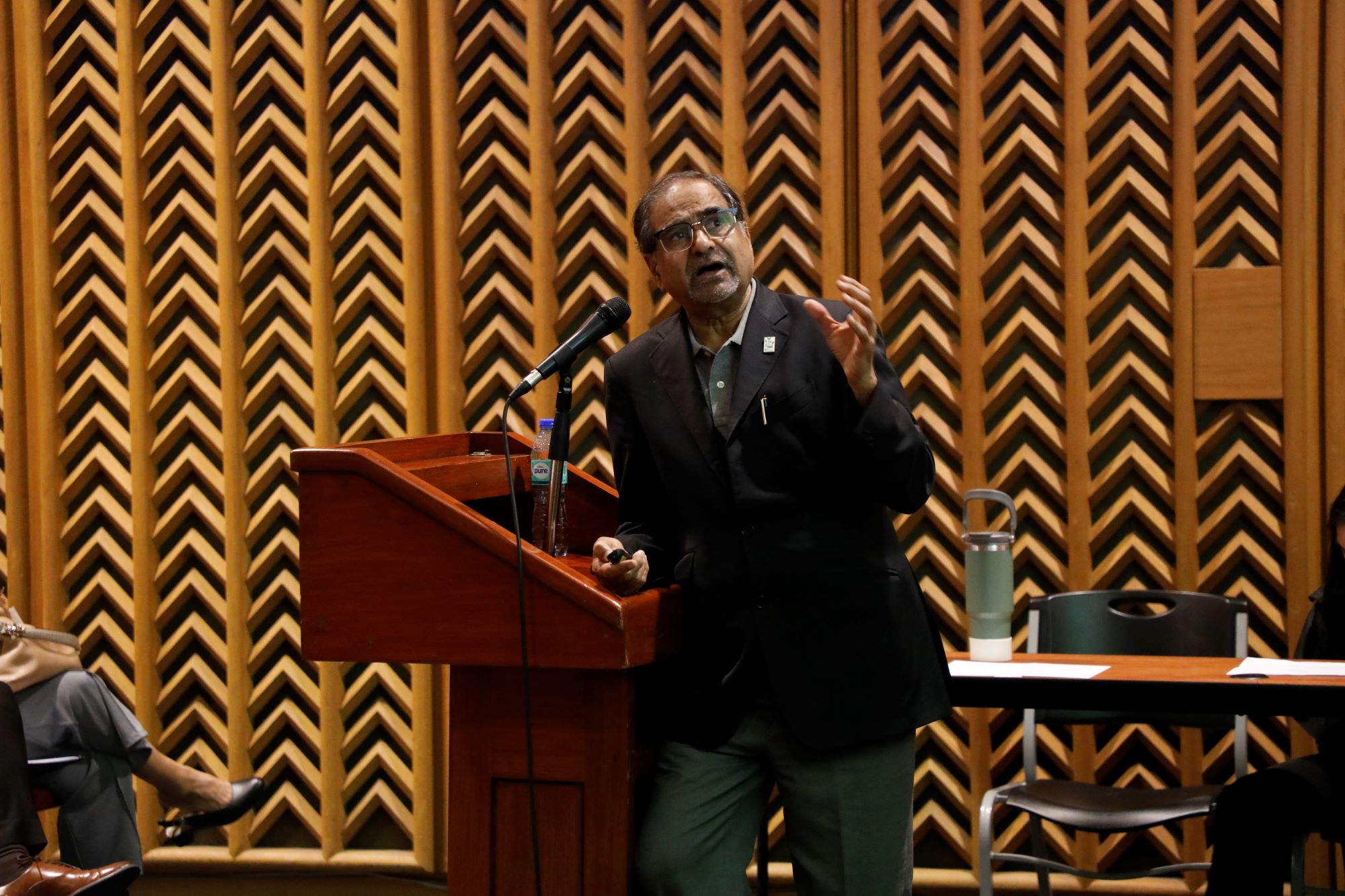Manila, Philippines (23 October 2023) — In a world grappling with the dual challenges of food security and environmental sustainability, J.K. Ladha, a renowned agronomist and soil scientist, shared his vision for sustainable agriculture at the recent 6th International Rice Congress.
In his presentation, Nature-Based Farming Solutions-Reimagined?, Dr. Ladha emphasized several key aspects of nature-based farming solutions (NBFS) with a particular focus on managing carbon and nitrogen.
He highlighted the importance of practices like laser land leveling, no-till or reduced-till farming, and crop rotation optimization that contribute to enhanced soil health, water conservation, and reduced greenhouse gas emissions. Additionally, Dr. Ladha pointed to the vital role of cover crops, deep-rooting crop varieties, and microbiome manipulation in nutrient cycling and soil fertility improvement. nitrogen application, and the use of biochar, which collectively helps farmers optimize resource use, mitigate climate change impacts, and enhance farming system resilience.

The integration of artificial intelligence (AI) and other cutting-edge technologies in agricultural science and extension services is another means for helping increase productivity while decreasing waste amid the increasing cost of food production, according to Dr. Ladha.
He highlighted how AI-powered tools empower farmers to make informed decisions, efficiently allocate resources, and enhance overall farm management practices, significantly amplifying the potential of NBFS.
"I think the whole area of generative AI is moving so rapidly and it has got huge potential in terms of how we do research and how we bring it to farmers’ field,” said Dr. Ladha.
Dr. Ladha urged for a collaborative approach involving farmers, researchers, policymakers, and other stakeholders. This cooperative effort would facilitate the exchange of knowledge, resources, and experiences, fostering the development and implementation of innovative NBFS approaches.

Scaling up and replicating successful NBFS models across various regions and farming systems were identified as crucial steps to maximize their impact and promote widespread adoption.
The insights from the presentation provide a strong foundation for the continued development and adoption of NBFS practices worldwide, offering a sustainable path towards a more secure and environmentally friendly global food system.
Dr. Ladha is an adjunct professor at the University of California-Davis and a former soil scientist and agronomist at the International Rice Research Institute (IRRI). He collaborated with Dr. Virender Kumar, research leader of the Climate-adaptive Agronomy and Mechanization Unit at IRRI, and Mr. Rikin Gandhi, chief executive officer of Digital Green, for this presentation.

